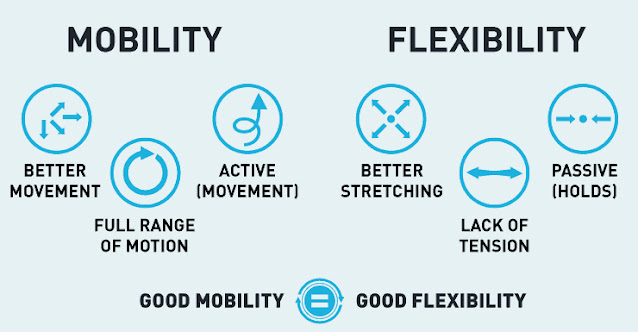Building a Strong Body and Mind: The Essential Components of Physical Fitness
Title: Building a Strong Body and Mind: The Essential Components of Physical Fitness
Physical fitness is a comprehensive approach to health and well-being that addresses a variety of factors, such as cardiovascular health, strength training, flexibility, and mobility. In this post, we'll examine these essential components of physical fitness, discussing their advantages and how you is capable of apply them to your life for a more vibrant, healthy version of yourself.
Workout Routines: The Basis for Fitness
An exercise routine is a planned program that combines several physical exercises to assist you reach your fitness objectives. These workouts may incorporate flexibility exercises, strength training, and cardiovascular activities. Here's how to design a fitness regimen that is well-rounded:
Cardiovascular Exercises:
Activities that raise your heart rate, such as swimming, cycling, or running, improve lung capacity and endurance. Try to get in at least 150 minutes a week of moderate-to-intense aerobic exercise or 75 minutes a week of strenuous aerobic activity.
Strength Training: Strength training enhances bone density, speeds up metabolism, and helps develop lean muscular mass. At least two days a week, incorporate activities such as bodyweight exercises, resistance bands, or weightlifting into your regimen.
Flexibility and Mobility:
Yoga and stretching are great ways to increase your range of motion and guard against injuries. Engage in these activities every day, or at least three times per week.
Cardiovascular Health: Fundamental Issues
The condition of your heart and blood arteries is referred to as cardiovascular health. It is essential for longevity and general well-being. This is the reason it's crucial:
Heart Health:
By strengthening your heart and increasing its blood-pushing efficiency, cardiovascular exercises lower your opportunity of developing heart disfacilitate.
Lung Health: Breathing becomes easier when you engage in aerobic activities, which enhance lung function and capacity.
Weight management: Maintaining a healthy weight lowers your opportunity of developing diseases linked to obesity when you engage in regular cardiovascular exercise.
Mood Enhancement: Engaging in cardiovascular exercise releases endorphins, which improve mood and lessen anxiety and tension.
Include exercises for strength training in your routine,
such as yoga, weightlifting, push-ups, and squats. Choose a weight that will challenge you and still allow you to perform the desired number of reps with good form at the beginning.
Mobility and Flexibility: The Ability to Move Around
Exercises for mobility and flexibility are often disregarded, but they are crucial for general physical fitness. This is why they are important:
Increased Range of Motion:
Performing stretches improves your range of motion in your joints and muscles.
Injury Prevention: When engaging in physical activity, flexibility lowers the chance of getting hurt.
Pain Reduction: Tension in the muscles can be released by stretching.
Better Posture: Maintaining good posture can be facilitated by increased flexibility.
Incorporate stretching routines or yoga poses into your everyday regimen. Concentrate on the main muscle groups, holding each stretch without bouncing for 15–30 seconds.
Including Exercise in Your Daily Life
Maintaining your physical health doesn't have to be a difficult endeavor; it should be a fun aspect of your everyday routine. This is how you include it:
Establish Realistic Goals:
Identify your fitness objectives and design a program that works with your timetable and capacity.
Key to Consistency: Maintain your schedule. When you make fitness a habit, it will come naturally to you.
Variety: Add a range of workouts and activities to keep things fresh. To avoid becoming bored, try new things.
Safety First: Put safety first by employing appropriate form, getting expert advice when needed, and refraining from overtraining.
Take Note of Your Body: Observe how your body reacts to physical activity. Recuperate and rest as needed.
Savor the Trip: A lifetime of physical fitness is required. Celebrate each step of the way you've come.
In conclusion, a stronger and healthier you
Being physically fit is about feeling your best and experiencing life to the fullest, not just looking positive. By adopting a lifestyle that prioritizes cardiovascular health, strength training, flexibility, and mobility, you is capable of improve your quality of life, prevent disfacilitate, and maintain your physical well-being.
Recall that maintaining physical fitness is a lifetime endeavor, and it is never too late to begin. The most crucial thing is to commence, regardless of experience level or deficiency thereof in the fitness realm. Put on your sneakers, receive out your yoga mat, and begin your path to becoming a stronger, healthier, and more energetic version of yourself. You'll feel the benefits in your body and mind.






